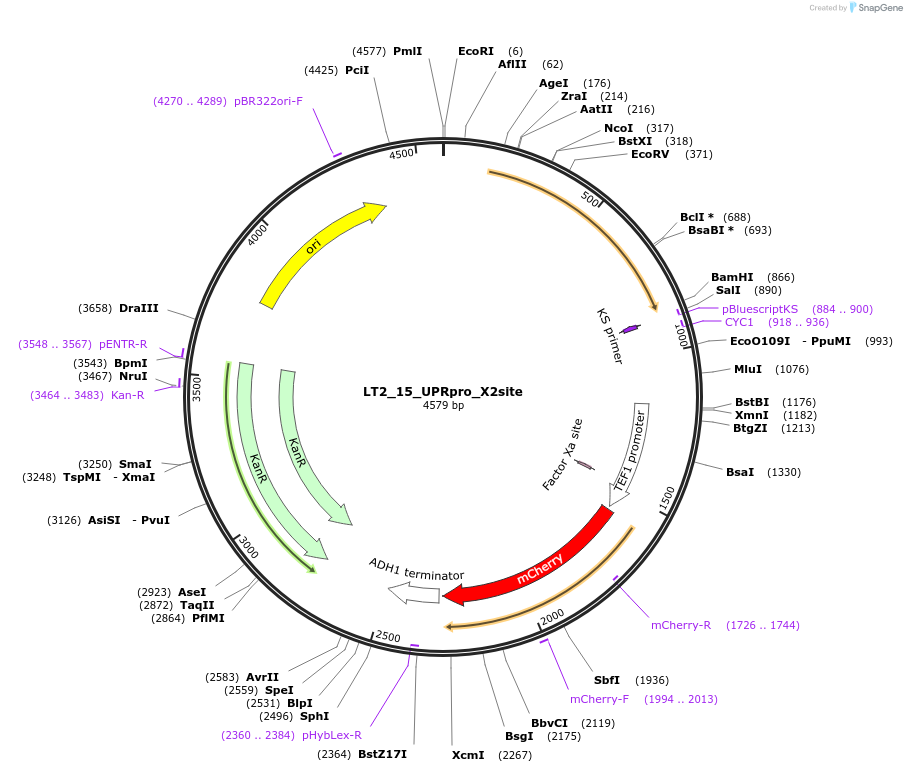LT2_15_UPRpro_X2site
(Plasmid
#194427)
-
PurposePlasmid for genome integration in X2 site expressing UPRpro - Sensor for Unfolded Protein Response
-
Depositing Lab
-
Sequence Information
Ordering
| Item | Catalog # | Description | Quantity | Price (USD) | |
|---|---|---|---|---|---|
| Plasmid | 194427 | Standard format: Plasmid sent in bacteria as agar stab | 1 | $89 | |
Backbone
-
Vector backboneMoClo YTK
-
Vector typeYeast Expression ; Used as donor DNA in genome integration after linearisation with NotI
Growth in Bacteria
-
Bacterial Resistance(s)Kanamycin, 50 μg/mL
-
Growth Temperature37°C
-
Growth Strain(s)DH5alpha
-
Copy numberHigh Copy
Gene/Insert
-
Gene/Insert nameUPRpro
-
Alt namep1xUPRE1SM-ymYPET-tCYC1
-
SpeciesS. cerevisiae (budding yeast)
-
MutationNA
Cloning Information
- Cloning method Restriction Enzyme
- 5′ cloning site BsmBI (destroyed during cloning)
- 3′ cloning site BsmBI (destroyed during cloning)
Resource Information
-
Supplemental Documents
-
A portion of this plasmid was derived from a plasmid made bySequence for p1xUPRE1SM amplified from DOI 10.1021/acssynbio.0c00633; Sequence for ymYPET obtained from Addgene plasmid #118455; Sequence for pTEFmut8 amplified from Addgene plasmid #124582.
Terms and Licenses
-
Academic/Nonprofit Terms
-
Industry Terms
- Not Available to Industry
Trademarks:
- Zeocin® is an InvivoGen trademark.
These plasmids were created by your colleagues. Please acknowledge the Principal Investigator, cite the article in which the plasmids were described, and include Addgene in the Materials and Methods of your future publications.
-
For your Materials & Methods section:
LT2_15_UPRpro_X2site was a gift from Lisbeth Olsson (Addgene plasmid # 194427 ; http://n2t.net/addgene:194427 ; RRID:Addgene_194427) -
For your References section:
ScEnSor Kit for Saccharomyces cerevisiae Engineering and Biosensor-Driven Investigation of the Intracellular Environment. Torello Pianale L, Olsson L. ACS Synth Biol. 2023 Aug 8. doi: 10.1021/acssynbio.3c00124. 10.1021/acssynbio.3c00124 PubMed 37552581



